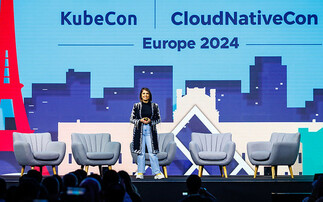Creative Artists Agency's Michael Keithley explains how freedom of device choice is enabling agents to provide a better service to celebrity clients
Talent representative organisation Creative Artists Agency (CAA) has adopted a "mobile first" strategy to enable its agents to provide better services to the firm's celebrity clients, who include T...
To continue reading this article...
Join Computing
- Unlimited access to real-time news, analysis and opinion from the technology industry
- Receive important and breaking news in our daily newsletter
- Be the first to hear about our events and awards programmes
- Join live member only interviews with IT leaders at the ‘IT Lounge’; your chance to ask your burning tech questions and have them answered
- Access to the Computing Delta hub providing market intelligence and research
- Receive our members-only newsletter with exclusive opinion pieces from senior IT Leaders






















